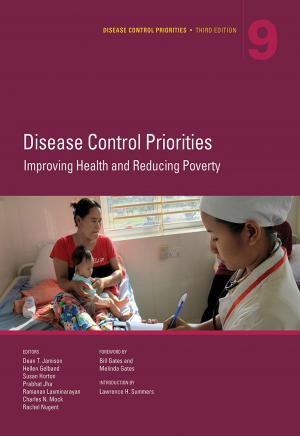The Jobs Crisis: Household and Government Responses to the Great Recession in Eastern Europe and Central Asia
Nonfiction, Science & Nature, Technology, Engineering, Environmental| Author: | World Bank | ISBN: | 9780821387436 |
| Publisher: | World Bank | Publication: | March 29, 2011 |
| Imprint: | Language: | English |
| Author: | World Bank |
| ISBN: | 9780821387436 |
| Publisher: | World Bank |
| Publication: | March 29, 2011 |
| Imprint: | |
| Language: | English |
The financial crisis which began in the United States and Western Europe swiftly expanded into an economic crisis throughout developing countries. The Eastern Europe and Central Asia region was hit harder than any other region in the world. Deteriorating macroeconomic conditions led to deteriorating household welfare as unemployment increased. Those workers who kept their jobs took home smaller paychecks. Men became more highly represented among the unemployed and youth struggled to secure their first job.Confronted by an income shock families tried two strategies. First families took steps to increase incomes by inserting non-working members of the family into the labor force by increasing the number of hours of work borrowing and tapping formal and informal safety nets. Second families took steps to reduce expenditures but some of those measures (food expenditures health care utilization) could have an impact on nutrition and health in the long run. More positively most households kept their children in school. Many countries took steps to protect human welfare and long-term human capital. Measures included gearing up automatic stabilizers such as unemployment insurance scaling up active labor market programs strengthening last-resort social assistance or increasing minimum pensions. These measures however only covered a minority of those in need and some programs responded more slowly than necessary. In addition evidence from a few countries shows steps to ensure access to health and education services especially for the poorest in the population.The report finds that governments in the region can improve their crisis responses by making automatic stabilizers more responsive and broad based; adjusting program parameters to the conditions on the ground; and starting new programs to fill coverage gaps that emerge. However to enable an efficient and flexible crisis response governments can benefit from fiscal discipline during good times and reliable and timely monitoring systems.
The financial crisis which began in the United States and Western Europe swiftly expanded into an economic crisis throughout developing countries. The Eastern Europe and Central Asia region was hit harder than any other region in the world. Deteriorating macroeconomic conditions led to deteriorating household welfare as unemployment increased. Those workers who kept their jobs took home smaller paychecks. Men became more highly represented among the unemployed and youth struggled to secure their first job.Confronted by an income shock families tried two strategies. First families took steps to increase incomes by inserting non-working members of the family into the labor force by increasing the number of hours of work borrowing and tapping formal and informal safety nets. Second families took steps to reduce expenditures but some of those measures (food expenditures health care utilization) could have an impact on nutrition and health in the long run. More positively most households kept their children in school. Many countries took steps to protect human welfare and long-term human capital. Measures included gearing up automatic stabilizers such as unemployment insurance scaling up active labor market programs strengthening last-resort social assistance or increasing minimum pensions. These measures however only covered a minority of those in need and some programs responded more slowly than necessary. In addition evidence from a few countries shows steps to ensure access to health and education services especially for the poorest in the population.The report finds that governments in the region can improve their crisis responses by making automatic stabilizers more responsive and broad based; adjusting program parameters to the conditions on the ground; and starting new programs to fill coverage gaps that emerge. However to enable an efficient and flexible crisis response governments can benefit from fiscal discipline during good times and reliable and timely monitoring systems.















